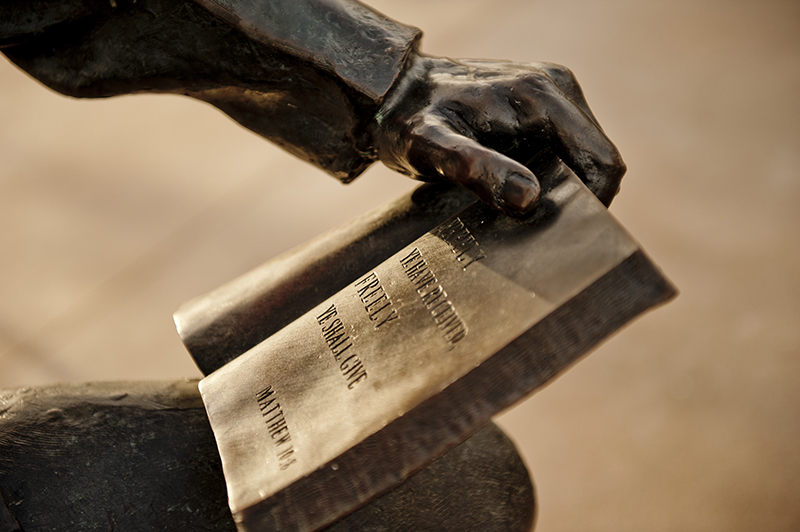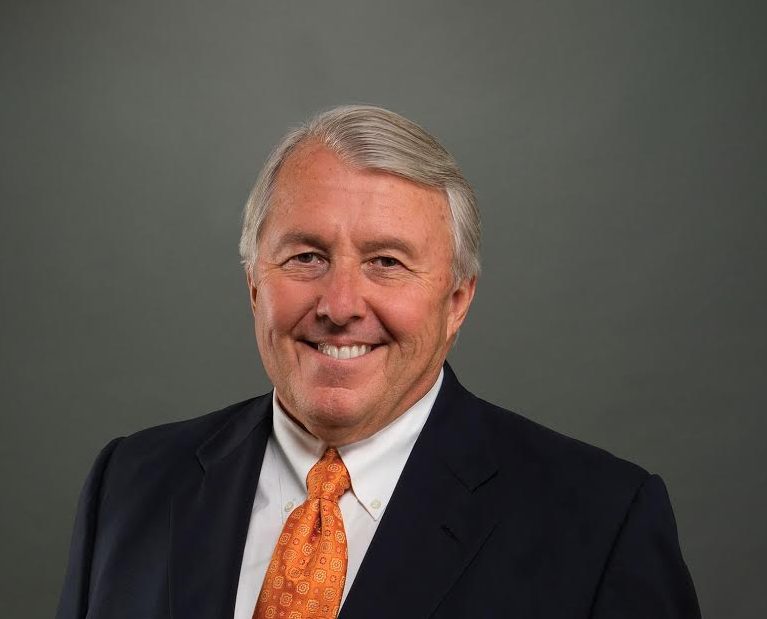
Growing up, religion was always a choice for sophomore Alaine Thronson.
She grew up in a Christian family that was heavily involved in the church, but religion was never forced upon her. As she got older, she started evaluating her beliefs more seriously. Thronson now considers herself as nonreligious, leaning more toward agnostic.
She knew what she was signing up for when she enrolled at Pepperdine, a Christian university. The religious aspect did not deter her in any way, and she came in with an open mind.
“When I came here I was able to accept more views and not just be like, ‘My view is correct and everyone else is wrong,’” Thronson said.
Religion seems to play differing roles for students at Pepperdine. For some, it’s a prominent part of their collegiate lives. For others, it’s part of the background. While Pepperdine aims to foster a faith-based environment, the campus community also emphasizes the importance of showing acceptance toward people on all ends of the religious spectrum.
Pepperdine was founded in 1937 as a Christian university affiliated with Churches of Christ. Its mission statement affirms, “Pepperdine is a Christian university committed to the highest standards of academic excellence and Christian values, where students are strengthened for lives of purpose, service and leadership.”
Undergraduate students are required to complete three religion courses to graduate, and in addition, they are to attend 14 programs in the Convocation series per semester.
The Princeton Review ranked Pepperdine at No. 13 on their list of the top 20 most religious students.
Thronson, a science major, said her beliefs are a little bit extreme for Pepperdine, but she thinks her views are still accepted. She said that although she feels nonreligious students are in the minority, they are not treated in a way that the term minority would often suggest.
“The school and the professors and the administration definitely give the tone of religious and belief, so I don’t think it’s looked down upon, but it’s unusual,” she said.
In the Pepperdine Office of Institutional Effectiveness Common Data Set for 2013-2014, religious affiliation/commitment ranks as a “very important” factor for freshman admission decisions.
Freshman Helena Morse, a science major, said she thinks religion is more of a tool to get into the school, but not as critical once a person is actually enrolled.
“Your religious affiliation seems to be very influential in your acceptance to all Pepperdine-related things, but once you’re in, they don’t really place a high importance on it,” Morse said.
Sophomore Allie Baumgarten, an international studies major, said she has seen students who are nonreligious be accepted at Pepperdine.
“From where I stand, I feel like Pepperdine does a good job as a community of welcoming people who are not religious, but I would be willing to hear somebody saying that’s not true,” Baumgarten said.
Baumgarten said she thinks students who are not interested in the religious aspect have an easy time avoiding it.
“It’s kind of like the same with like the drinking scene. If you want it you can go find it, but if you don’t want it you don’t have to have it,” she said.
Morse said she does not think that Pepperdine forces religion, but students who are religious may have an easier time succeeding.
“I don’t think Pepperdine shoves it down your throat, but I think they make it easier for you to thrive if your religious views coincide with theirs,” Morse said.
President Andrew K. Benton delivered a lecture on Tuesday, Oct. 28 in Elkins Auditorium about Pepperdine’s Christian commitment, in which he discussed Pepperdine’s mission to remain a faith-based institution.
“Pepperdine is desperately trying to find its way in this world that increasingly forces toward secularism,” Benton said.
According to the “Pepperdine at a Glance” page on the school website, “Faculty, administrators and members of the Board of Regents represent many religious backgrounds, and students of all races and faiths are welcomed.”
Pepperdine promotes acceptance of all faiths, but data does not indicate significant diversity in religious affiliations.
Pepperdine’s Office of Institutional Effectiveness factbook contains the headcount of students by religious preference. Of the 3,367 students enrolled at Seaver College in 2013, the largest amount of students in any category was the 675 in the “Other Christian” group. Some 550 students were Roman Catholic, and 429 were Church of Christ. Some other notable numbers were the 21 Jewish students, 17 Islamic students, 13 Hindu students and 11 Mormon students.
Data shows that the numbers of students at Seaver College who claim to be nonreligious have increased in the last five years. According to the Office of Institutional Effectiveness factbook, in 2008, 72 students said they had no religion, compared to the 117 students who claimed to have no religion in 2013. The number of students who specify their religions as undeclared has more than doubled in the past five years, with 226 students in 2008, and 594 students in 2013.
This data indicates that students have become less religious and also more unsure of their faiths in the past five years.
In the lecture that Benton delivered on Oct. 28, he said he is committed to preserving the faith emphasis at Pepperdine. Benton said that he does not want to go the way that so many faith-based schools have gone.
“So many of them fell off of that as a matter of expedience because it was easier to be academically excellent if you weren’t somehow encumbered by faith,” Benton said. “We do not think of our faith as an encumbrance. We think of it as energy and as a launching pad for all the things that we wanted to do.”
Laura Leinbach completed this story in Professor Wendy Fontaine’s fall 2014 Jour 241 class.



